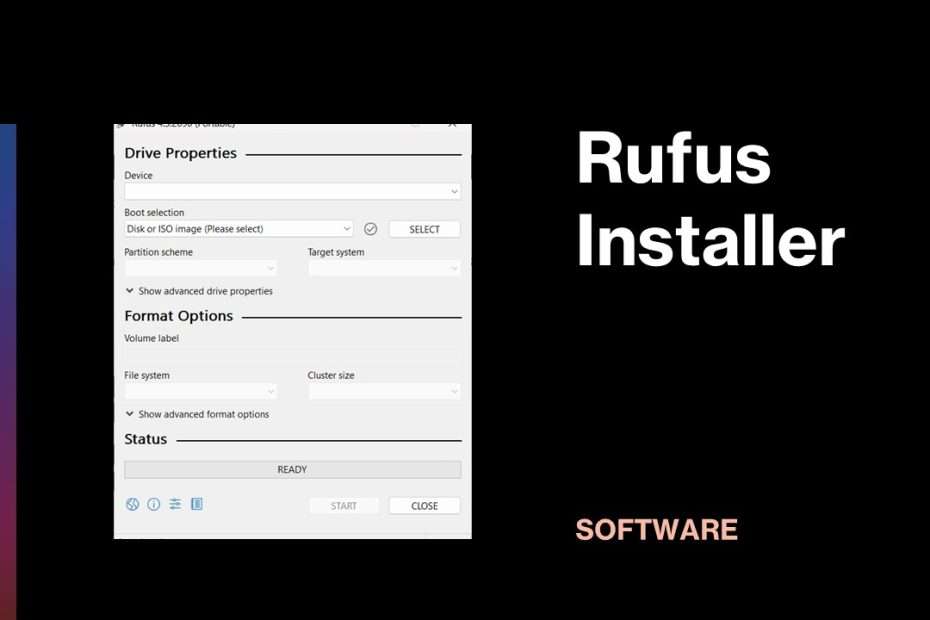Rufus 2024 is a compact utility designed to assist in formatting and creating bootable USB flash drives. This tool proves particularly valuable in various scenarios, such as when there is a necessity to generate USB installation media from bootable ISOs, including those for Windows, Linux, or UEFI systems. Additionally, it serves as a practical solution for situations where you need to operate on a system lacking an installed operating system. Whether you’re looking to flash a BIOS or other firmware from DOS or run a low-level utility, Rufus offers a versatile solution to cater to these requirements.
Despite its modest size, Rufus stands out by providing a comprehensive set of features to fulfill all your needs related to USB flash drive formatting and bootable media creation.
Rufus OS Support
Rufus has proven compatibility with a diverse range of ISOs, making it a versatile tool for various operating systems and utilities. Among the supported ISOs are popular Linux distributions like Arch Linux, Archbang, CentOS, Fedora, Gentoo, gNewSense, Knoppix, Kubuntu, Linux Mint, OpenSUSE, Slackware, and Tails. Rufus is not limited to Linux, it also works seamlessly with Windows ISOs, including Windows XP (SP2 or later), Windows Server 2003 R2, Windows Vista, Windows 7, Windows 8, Windows 10, and the latest Windows 11. Additionally, it extends its compatibility to other utilities such as BartPE/pebuilder, Damn Small Linux, FreeDOS, Hiren’s Boot CD, LiveXP, NT Password Registry Editor, Parted Magic, Trinity Rescue Kit, and Ultimate Boot CD.
This comprehensive support underscores Rufus’s capability to cater to a wide array of user needs, from creating Linux installation media to working with various Windows versions and utility ISOs. The tool’s flexibility in accommodating diverse systems and purposes positions it as a reliable choice for users seeking efficient and effective USB flash drive formatting and bootable media creation.
Rufus stands out for its remarkable speed in comparison to other USB bootable drive creation tools. Notably, it boasts a speed that is approximately twice as fast as alternatives like UNetbootin, Universal USB Installer, or the Windows 7 USB download tool when generating a Windows 7 USB installation drive from an ISO. This efficiency extends beyond Windows installations, as Rufus also demonstrates a marginally faster performance in the creation of Linux bootable USB drives from ISOs. The speed advantage positions Rufus as a time-saving and efficient choice for users looking to create bootable USB drives for both Windows and Linux operating systems.
In practical terms, the accelerated speed of Rufus significantly streamlines the process of creating bootable USB drives, providing users with a quicker and more responsive experience compared to other commonly used tools. Whether you are working on Windows or Linux installations, Rufus’s speed advantage enhances its overall usability and makes it a preferred option for users seeking a swift and efficient solution for USB drive creation.
What’s New in 2024?
- Enhance Rufus by incorporating support for preserving Rock Ridge symbolic links when utilizing NTFS as the file system.
- Introduce a specific exception to mandate NTFS for Linux Mint’s LMDE, ensuring a tailored and optimized file system choice for this particular Linux distribution.
- Integrate an advanced feature that allows users to restrict a Windows installation to S Mode, providing expert users with additional control and customization options.
- Resolve the persistence support issue for Debian 12 when booted in BIOS mode, ensuring a seamless user experience and compatibility with this Debian version.
- Address a regression in Rufus that previously hindered the opening of .vhd images, enhancing overall functionality and usability.
- Update UEFI:NTFS to provide a more explicit error report when encountering bootmgr security issues, enhancing clarity and diagnostic capabilities.
- Optimize Rufus by improving the search for conflicting processes through background thread execution, enhancing efficiency and responsiveness.
- Bolster support for Slax Linux within Rufus, ensuring compatibility and a smooth user experience for users employing this particular Linux distribution.
- Implement a detection mechanism along with warnings for UEFI revoked bootloaders, enhancing security measures and alerting users to potential risks during the bootloading process.
Rufus comes highly recommended as your go-to software for creating a Bootable USB. To access Rufus, you can conveniently download either the Rufus Installer or the Portable version by following the provided link.
To get started with Rufus, simply choose the version that suits your preferences – the Installer for a standard installation or the Portable version for a flexible, on-the-go solution.
Rufus Download
Size: 1.36MB
OS Support: Windows
Version: Installer and Portable
Maybe you liked other articles?

